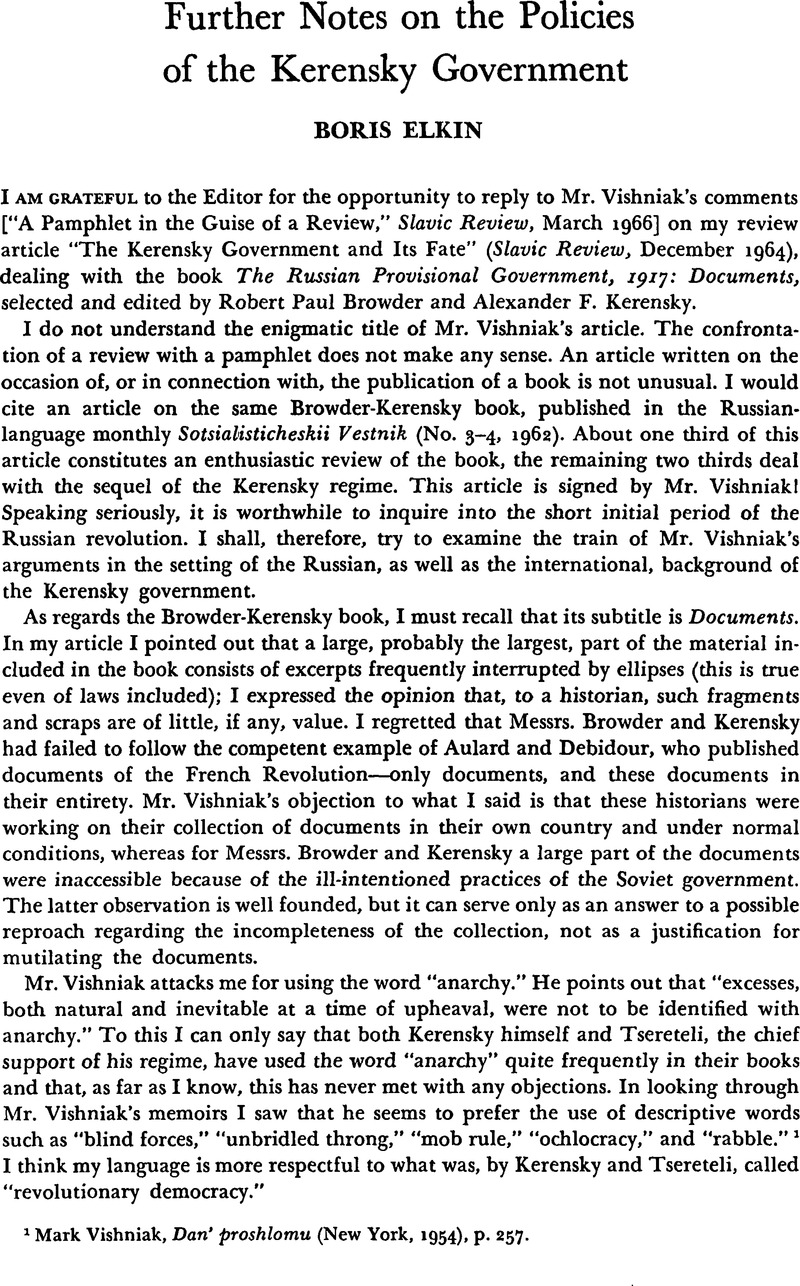Published online by Cambridge University Press: 27 January 2017

1 Mark, Vishniak, Dan’ proshlomu (New York, 1954), p. 257.Google Scholar
2. I. G. Tsereteli, Vospominaniia o fevral'skoi revoliutsii (Paris and The Hague, 1963), I, 172 ft., 184, 195, 200, 209 ff. At the time I wrote my article, Tsereteli's memoirs were not yet available in London.
3 Ibid., pp. 209, 211, and passim.
4 Ibid., p. 213.
5 Philip Scheidemann, Der Zusammenbruch (Berlin, 1921), pp. 118, 121, 128, 133, 137.
6 Tsereteli, I, 176-77.
7 Ibid., II, 363.
8 Erich Ludendorff, Meine Kriegserinnerungen (Berlin, 1920), pp. 332 ff., esp. 339.
9 Ibid., p. 327.
10 The above is based mainly on General Max Hoffmann's book Der Krieg der versäumten Gelegenheiten (Munich, 1923), pp. 177-84. As far as I know, Hoffmann's data or figures are generally not questioned.
11 Alexandre Kerenski, L'Expirience Kerenski (Paris, 1936), p. 117. Italics added.
12 See Papers Relating to the Foreign Relations of the United States, 1917, Supp. I: The World War (Washington, 1931), pp. 598 ff.
13 I quote the translation contained in C. Jay Smith, Jr., The Russian Struggle for Power, 1914-iQij: A Study of Russian Foreign Policy during the First World War (New York, 1956), p. 226.
14 The letter is reproduced in Raymond Poincaré, Au Service de la France: Neuf Années, de Souvenirs (Paris, 1926-33), VI, 92 ff. It is noteworthy that in these detailed reports on governmental deliberations and decisions no mention whatsoever was made of the final agreement.
15 V. Nabokov, “Vremennoe Pravitel'stvo,” in Arkhiv russkoi revoliutsii (Berlin, n.d.), I, 63.
16 For a detailed account see Admiral A. Bubnov, V Tsarskoi Stavke (New York, 1955), esp. pp. 265 ff.
17 Nabokov, p. 42.
18 Extracts from Tsereteli's articles published in 1928-29 in the Swedish socialist paper Ny Tid and reproduced in his Vospominaniia, II, 408 and 415. Italics added.